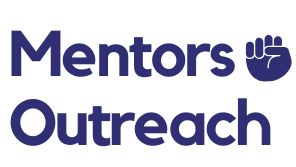Soft skills refer to both character traits and interpersonal skills that will influence how well a person can work or interact with others. The term soft skills cover a wide range of skills as diverse as teamwork, time management, empathy, and delegation.
The World Economic Forum Future of Jobs report suggested that by 2020, complex problem-solving, critical thinking, creativity, people management, and emotional intelligence would be among the most important skills required in the workplace.
What are Soft Skills?
Soft skills are personal attributes that influence how well you can work or interact with others. These skills make it easier to form relationships with people, create trust and dependability, and lead teams.
Soft skills can include, or relate to, the following:
- Interaction
- Leadership
- Time management
- Innovation
- Creativity
- problem-solving
- Networking
- Presentation
- Conflict resolution
- Communication (both listening and speaking skills)
- Teamwork
- Critical thinking
- Working under pressure
Why Are Soft Skills Important?
Soft skills are the keys that open up new opportunities in the working world as well as our personal lives. There are very few jobs that don’t depend on soft skills. These skills can be improved, yet are typically not skills that are acquired from traditional methods like college or books. Desirable soft skills include adaptability, good people skills, the ability to communicate ideas and intentions, and common sense.
You don’t have to graduate from a top university to acquire soft skills. Intangible soft skills like listening and empathy help facilitate relationships with others, get buy-in on ideas, and move projects forward with less friction.
By harnessing the power of soft skills, you can learn how to demonstrate strong leadership skills and advance your career. Professionals with the strongest soft skills can often achieve far more successes than those who focus solely on developing and expanding their repertoire of hard skills. They tend to be likable, sociable, and get along easily with a disparate group of people. In short, they are “people persons” for whom social and professional interactions appear natural and unforced.
How to Improve Your Soft Skills
Simply being aware that you should up your soft skills games is a great start. You can set specific goals to improve your interpersonal skills in the workplace. An excellent way to regularly measure your progress is to proactively seek feedback from your team. Peers are more likely to spot and help you identify blind spots and gaps in your soft skills through day-to-day interactions.
Read more about soft skills:
- Skills for Your Future
- These are the most important skills you need to be successful in the modern workplace
- What are soft skills and why are they important at work?
- What Are Soft Skills and Why Are They Important in the Workplace?
- Why Soft Skills Matter And The Top 3 You Need
- What are Soft Skills?
- This soft skill will boost your employability
- Top Soft Skills Employers Value With Examples

